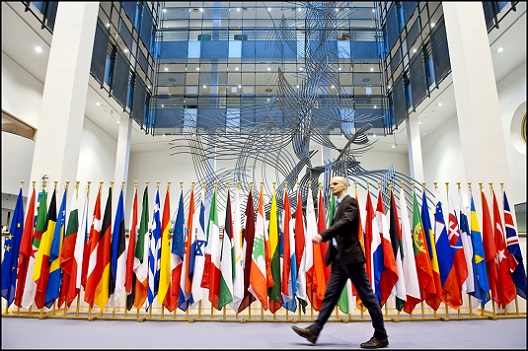 While initiating political reform is difficult, sustaining it is even more so. This is not unique to Arab societies. Rather, it is a challenge that today’s well-functioning democracies had to contend with in their often-turbulent formative years. The answer is a process of smart incrementalism, which establishes and safeguards state institutions while creating the potential for additional reforms down the line.
While initiating political reform is difficult, sustaining it is even more so. This is not unique to Arab societies. Rather, it is a challenge that today’s well-functioning democracies had to contend with in their often-turbulent formative years. The answer is a process of smart incrementalism, which establishes and safeguards state institutions while creating the potential for additional reforms down the line.
To expect a nation to move from authoritarianism to a near-perfect democratic system through the instrument of elections alone is to invite failure. At some point, one has to stop and realize that elections are not the foundation of democracy, but a manifestation of it. And once a country has passed the point of already initiating reform, a key organizing principle to sustaining it is smart incrementalism.
For far too long, key international players have pushed the idea that basic democratic principles would inevitably materialize in countries if only free and fair elections were allowed to be held—or, in simpler terms, the idea that elections come first and individual liberty comes later. Yet time and again, one has seen new democracies established, only to later watch them fall into the same traps as their predecessors: protesters are silenced, media outlets are censored, and even satire is banned. Inexperienced elected leaders often feel weak as they take over turbulent nations, and this pushes them to resort to the tactics of strongmen, rather than work toward building up a tradition of strong leadership. As a result, democratic ideals and civil rights are trampled upon in the pursuit of stable government.
If sustainability is the end goal, there needs to be a foundation made up of strong institutions that guarantee basic democratic principles for citizens, even if their leaders are not elected through the will of the people. Freedom of speech and government transparency are essential to a more democratic system, as they create openings for additional reforms. Authoritarian rule and government for the people are ideas that seem to be mutually exclusive, but they are not entirely so. They can, in fact, coexist until one erodes, or overpowers, the other. For example, if citizens are able to speak out about their governments’ expenditures and elicit a certain degree of responsiveness, not only will they feel empowered, they will also notice when those rights are stripped away from them. In a way, the people start to serve as a check and balance on the government. Step by step, in an incremental fashion, good governance that is for the people will ultimately become governance of the people and by the people as well.
This is not to say that one should be content with aiming for mediocrity. It is to say that in many places mediocrity just happened to be a part of what turned out to be the long road toward democracy. Pushing for the best should give way to incrementally establishing institutions that put in place, promote, and safeguard basic democratic principles and rights—beginning with the right of access to information and the freedoms of speech and of the press. And if this sounds like a pitch for mediocrity, that would be a small price to pay if—along the long path toward well-functioning democracies—slippages or, worse, reversals were avoided.
This was originally published by Carnegie Endowment for International Peace in the report Arab Fractures. Salam Fayyad is a MEPSI Distinguished Statesman with the Atlantic Council’s Brent Scowcroft Center on International Security, where he focuses on issues such as the Israeli-Palestinian relationship and the peace process, regional security, including the rise of nonstate actors and related challenges, renewable energy, and economic development issues. Fayyad is an economist, independent politician, and former Prime Minister of the Palestinian Authority (2007- 13).
Image: Photo: Union for the Mediterranean - European Parliament hosts debate on the way forward after the Arab Spring. At the European Union 2013 - European Parliament
